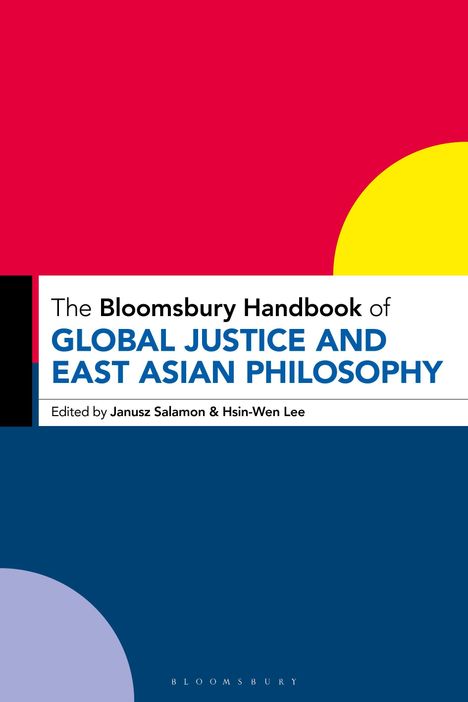Bloomsbury Handbook of Global Justice and East Asian Philosophy, Gebunden
Bloomsbury Handbook of Global Justice and East Asian Philosophy
(soweit verfügbar beim Lieferanten)
- Herausgeber:
- Janusz Salamon, Hsin-Wen Lee
- Verlag:
- Bloomsbury Academic, 09/2024
- Einband:
- Gebunden
- Sprache:
- Englisch
- ISBN-13:
- 9781350327467
- Artikelnummer:
- 11119032
- Umfang:
- 424 Seiten
- Gewicht:
- 454 g
- Maße:
- 244 x 169 mm
- Stärke:
- 25 mm
- Erscheinungstermin:
- 19.9.2024
- Hinweis
-
Achtung: Artikel ist nicht in deutscher Sprache!
Klappentext
Breaking out of the dominance of Anglo-American scholarship, this volume centralises East Asian philosophical traditions to explore cross-cultural perspectives in the field of global justice studies. By bringing together diverse traditions of thinking about justice that contrasts East Asian and Western thinkers' traditions, it avoids the shortcomings of narrow and one-sided conceptualisations of global justice.
A range of contributors from East Asia, Europe, and the US who are conversant with both Western and East Asian philosophical traditions provide a rich engagement with contemporary issues relating to global justice. The book opens with a section devoted to the methodological challenges specific to cross-cultural approaches to justice, including the universalism / particularism debate and the conditions of the possibility of cross-cultural comparisons. Part II explores how major East Asian philosophical traditions-including Confucianism, Legalism, Daoism and Buddhism-consider issues related to global justice. The essays in Part III adopt a cross-cultural and / or comparative perspective on justice, enabling the readers to appreciate similarities and differences between the East Asian and Western perspectives on justice, and to appreciate cultural variation. Key applied issues in global justice, such as epistemic injustice, human rights, women's rights, nationalism, religious pluralism, coercion, corruption and post-colonial justice, receive full consideration in the final section of this indispensable reference work for understandings of global justice in East Asia specifically and cross-culturally.


